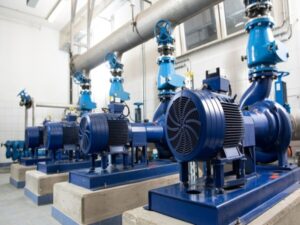Spiralling electricity costs are placing increasing pressure on municipalities to reduce consumption. This is particularly the case for water and wastewater plants, which tend to be among the heaviest users, says Hugo du Plessis, senior project engineer at KSB Pumps and Valves (KSB).
This view is supported by Sustainable Energy Africa’s 2017 report entitled Sustainable energy solutions for South African local government: a practical guide. An extract from the report states, “The indications are that on average water and wastewater accounts for some 17% of energy consumption in a South African metro. In terms of electricity consumption alone (i.e., excluding liquid fuel use for vehicles), the proportion is far higher – often representing as much as 25% of the entire municipality’s electricity bill.”Du Plessis says that aeration is one of the stages that consumes a lot of energy as it requires large pump systems. “Municipalities may not always pay attention to this aspect and may neglect to overhaul due to the expensive nature of more energy efficient systems. However, what is important to remember is that although the expense may be high at the start, the benefits of cost saving in the long run will be worth it,” he explains, adding that KSB’s energy efficiency audits assist in improving process performance.
“Reliable energy efficient pump systems will not only result in energy and cost saving, but there are also other benefits for the municipality, which include no spillages, a reliable uptime, decline in downtime, as well as better water quality,” du Plessis concludes.






